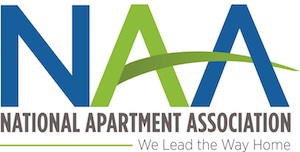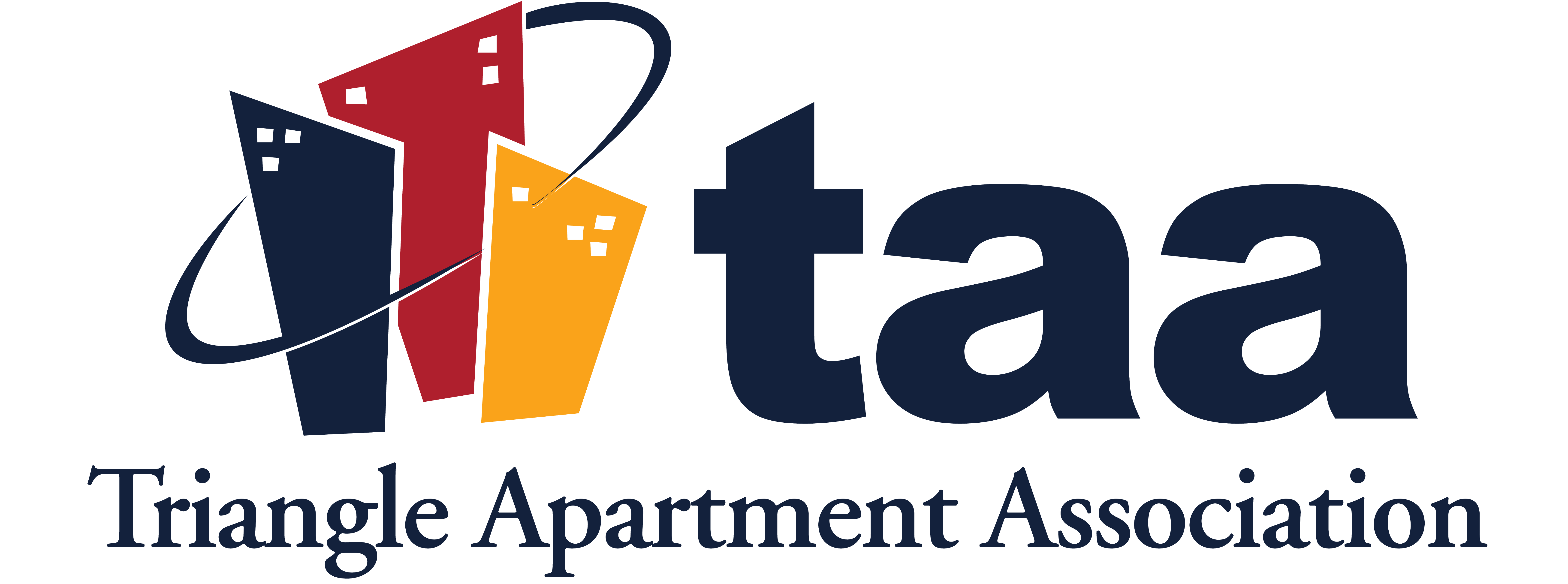New CDC National Eviction Moratorium Information
New details will continue to be updated as soon as we have them. This page was last updated 9/15/2020.
 National Apartment Association National Apartment Association |
Contact: Todd Usher 703-797-0678 or tusher@naahq.org |
 National Apartment Association National Apartment AssociationNews Release |
Contact: Todd Usher 703-797-0678 or tusher@naahq.org |
NAA Statement on CDC National Eviction Moratorium
ARINGTON, VA | September 1, 2020 – Statement from NAA President & CEO Bob Pinnegar:
The National Apartment Association (NAA) and its members are deeply concerned with the U.S. Centers for Disease Control and Prevention’s order for a temporary halt in residential evictions. Without direct rental assistance, rents cannot be paid, and owners face a financial crisis of their own by not being able to maintain properties and pay their mortgages or property taxes. This action risks creating a cascade that will further harm the economy, amplify the housing affordability crisis and destroy the rental housing industry. This global housing crisis cannot be blamed on the rental housing industry, nor can the industry bear the brunt of the pandemic alone. We need balanced, reasonable solutions for all Americans.
Dear NAA Members,
The National Apartment Association (NAA), in partnership with the Texas Apartment Association (TAA), has prepared preliminary guidance and FAQs that housing providers throughout the country can use to better understand their rights and responsibilities under the Centers for Disease and Control’s (CDC) eviction order, which is expected to go into effect tomorrow, September 4, and bars evictions through December 31, 2020.
This guidance is not intended to be state specific and should be used in conjunction with advice from local legal counsel to interpret these requirements in light of existing federal, state and local eviction laws.
The guidance and FAQs include information about:
- The types of evictions limited under the Order, and what rental properties, owners and companies it applies to;
- Which residents are covered under the Order, and what they are required to do to be covered;
- Which evictions are allowed under the Order;
- How the Order impacts property operations like fees, late charges, and notices; and
- How the Order impacts other state or local requirements related to evictions.
The Order does NOT eliminate the resident’s obligations under the lease, and housing providers may charge late fees or other penalties for nonpayment of rent.
There still remain a number of unanswered questions about the Order and how it will be implemented; this is an evolving situation and we encourage members to stay tuned for updated information as it becomes available. Members should consult local legal counsel for additional guidance and follow all applicable federal, state and local laws. NAA is proud of the flexibility and adaptability of our members and encourages continued work with residents to avoid evictions where possible.
To help unpack the order, NAA and TAA are sponsoring a free 75-minute webinar, "Understanding the CDC Eviction Moratorium," on Thursday, September 10 at 2 p.m. CDT. The webinar features NAA Senior Vice President, Government Affairs Greg Brown, NAA Vice President, Legal Affairs and Counsel Scot Haislip, NAA Senior Staff Attorney Ayiesha Beverly, NAA Director of Public Policy Nicole Upano, TAA General Counsel Sandy Hoy and Hoover Slovacek Equity Partner Howard Bookstaff, who will provide the latest updates on the CDC Order. Reserve your space now.
Look for more information after Labor Day about NAA’s latest advocacy efforts to urge Congress and the Administration to return to the negotiating table and appropriate sufficient emergency rental assistance to fill the gap created in thousands of rental housing communities around the nation.
At the same time, we understand and share your concerns about how this new Order will impact your business. If you have examples of how you’ve been affected by past orders, please reach out to CV19questions@naahq.org and share your experience. Your stories are invaluable in our advocacy and media efforts. Please utilize the same email address for any questions about the CDC Order or COVID-19 in general.
On September 1, 2020, the U.S. Centers for Disease Control and Prevention (CDC) filed an order in the Federal Register to temporarily halt residential evictions to prevent the further spread of COVID-19. The order was formally published on Friday, September 4, 2020 and bars evictions of renters in residential housing until December 31, 2020.
The order:
- Applies to virtually all rental housing providers and prohibits any eviction action to remove a renter from their housing during the covered period, so long as the renter provides the required declaration to their housing provider;
- Does not prevent evictions based on the lawful reasons articulated in the order, other than nonpayment of rent;
- Does NOT eliminate the resident’s obligations under the lease, and housing providers may charge late fees or other penalties for nonpayment of rent; and
- States that any person or organization that violates the order may be subject to up to $500,000 in fines per violation and/or jail time. Enhanced penalties apply if the violation resulted in death, at the discretion of the U.S. Department of Justice.
For renters to be eligible for the order’s protections, they must provide a declaration under penalty of perjury to their housing provider indicating the following:
- The individual has used best efforts to obtain rental assistance;
- The individual expects to earn no more than $99,000 (no more than $198,000 when filing jointly); was not required to report income in 2019 to the IRS; or received a stimulus check pursuant to the CARES Act;
- The individual is unable to pay their full rent due to a number of factors that remain unconnected to COVID-19;
- The individual is using best efforts to make timely partial payments; and
- Eviction would likely render the individual homeless or force the individual to move into and live in close quarters in a new congregate or shared living setting because the individual has no other available housing options.
An example of the declaration can be found in the order, and the CDC has provided the document on the website here. Please note that this form will immediately halt any eviction proceedings, and housing providers are not required to distribute the form to residents.
Jurisdictions that have an eviction moratorium providing the same or greater level of public-health protection than the CDC order are exempt from its requirements.
NAA’s response to this order was immediate. A statement issued the day the order was released noted: “Without direct rental assistance, rents cannot be paid, and owners face a financial crisis of their own by not being able to maintain properties and pay their mortgages or property taxes. This action risks creating a cascade that will further harm the economy, amplify the housing affordability crisis, and destroy the rental housing industry.” In the intervening weeks, NAA has taken this message to the public in interviews across numerous media outlets and directly to policymakers. A grassroots mobilization was also launched on September 9 to reinforce our core message: Congress and the Administration must allocate funds necessary for a robust emergency rental assistance program for renters impacted by COVID. This is the only way to maintain stability in the rental housing market and avoid a new and worse housing crisis.
While Congressional action is ultimately the best way to mitigate the damage from the CDC order, ultimately legal action may be needed to not stop this specific order but forestall future Administrations from using the same tactic to achieve its political ends.
In the immediate term, to help housing providers better understand their rights and responsibilities under the order, NAA, in partnership with the Texas Apartment Association (TAA), has prepared preliminary guidance and FAQs. This guidance is not intended to be state-specific and should be used in conjunction with advice from local legal counsel to interpret these requirements in light of existing federal, state and local eviction laws.
NAA and TAA also sponsored a free 75-minute webinar, "Understanding the CDC Eviction Moratorium," on Thursday, September 10. The webinar featured NAA Senior Vice President, Government Affairs Greg Brown, NAA Vice President, Legal Affairs and Counsel Scot Haislip, NAA Senior Staff Attorney Ayiesha Beverly, NAA Director of Public Policy Nicole Upano, TAA General Counsel Sandy Hoy and Hoover Slovacek Equity Partner Howard Bookstaff, who provided the latest updates on the CDC Order. Almost 5,000 individuals participated in the webinar and over 1,000 questions were logged. A recording of the webinar is available on the NAA website here.
There remain a number of unanswered questions about the Order and how it will be implemented; this is an evolving situation and NAA will provide for updated information as it becomes available. If you have any questions about the CDC order, or COVID-19 in general, please reach out to NAA staff at CV19questions@naahq.org.
 For Immediate Release: For Immediate Release:September 01, 2020 |
Colin Dunn |
Statement By NMHC President Doug Bibby on Administration's Enactment of Federal Eviction Moratorium
WASHINGTON, D.C. – We are disappointed that the Administration has chosen to enact a federal eviction moratorium without the existence of dedicated, long-term funding for rental and unemployment assistance. An eviction moratorium will ultimately harm the very people it aims to help by making it impossible for housing providers, particularly small owners, to meet their financial obligations and continue to provide shelter to their residents.
Not only does an eviction moratorium not address renters’ real financial needs, a protracted eviction moratorium does nothing to address the financial pressures and obligations of rental property owners. Without mortgage forbearance protections and protections from other property level financial obligations such as property taxes, insurance payments, and utility service, the stability of the entire rental housing sector is thrown into question.
We agree with Secretary Mnuchin, Speaker Pelosi and Leader Schumer that policymakers need to come back and negotiate a strong rental assistance program. Furthermore, we believe renter protections are best left to state and local officials who better know their housing markets and can tailor protections to the varied and unique eviction laws and judicial processes across jurisdictions.
